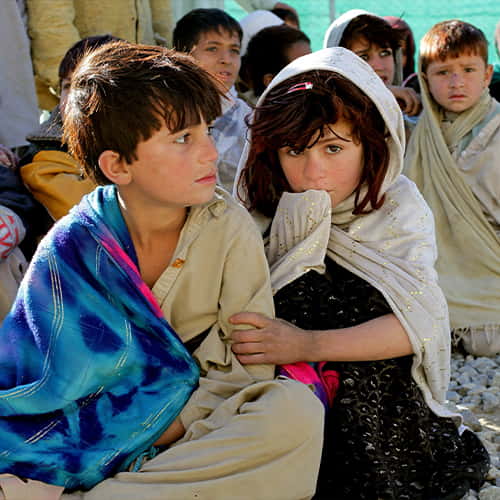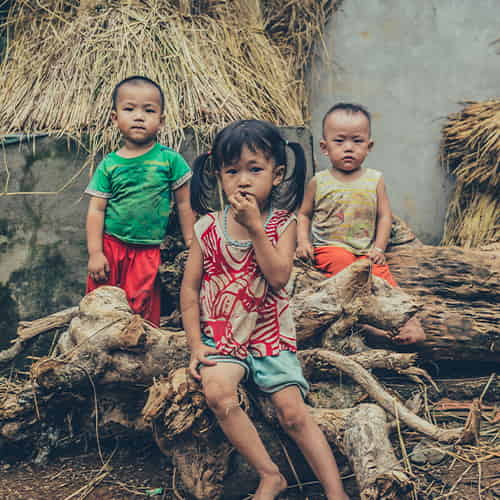How Poverty Affects Education
The World Bank estimates that 689 million people (roughly 9.2% of the world) experience dire poverty.1 Poverty is an extensive, global concern that affects all aspects of a person’s life. Among other things, it limits children’s opportunities for safety and security and exposes them to illness, injury and violence.
There is a strong link between poverty and education. Poverty can cause undereducation, and undereducation often contributes to poverty. How poverty affects education touches children, their families and their whole communities. Poverty and undereducation is a vicious cycle.
So how does poverty affect children? Here are some of the ways:
Housing – Many children in poverty are homeless or regularly relocate because they do not have a consistent or safe home. Children without housing security may not consistently attend school; they may also fall behind on their school work.
Nutrition – Many impoverished people do not regularly eat enough nutritious food to build their immune system and general health; others do not have enough food to survive. Malnutrition reduces muscle mass, weakens muscles, inhibits brain function, halts physical development, and causes other health concerns.3
Medical care – Many communities experiencing extreme poverty also do not have access to clean water, so they cannot safely wash their hands or food. Visibly or invisibly contaminated water contains waterborne diseases like dysentery, which can lead to death if not treated properly. Medical clinics are often few and far between, based on financial resources and available doctors or medical professionals. Many families experiencing poverty will not have easy access to such facilities; others will often not have the money to seek treatment.
Untreated waterborne diseases, routine illnesses, malnutrition and childhood injuries can prevent children from attending school for extended periods or permanently. Simple conditions like poor eyesight can limit a child’s success in school if their family cannot afford glasses.
Violence – Children experiencing poverty are seven times more likely to harm themselves or experience violence in their homes, work or schools.2 Violence is a factor in how poverty affects education; children experiencing violence are less likely to attend school.
Poverty creates dire situations for families worldwide. Many families do not have options; they need their children to work to survive. According to the International Labour Organization, 32% of child laborers no longer attend school.4 Some families sell their children into slavery to make money; others need their children to work alongside them to supplement their income. Child labor exposes children to extreme temperatures, pollutants, hazardous situations and even abuse. Employers may deprive child workers of food and care or beat them when they are less productive.
Support – Many children living in poverty do not have the necessary resources and support to succeed in school. Impoverished families may not have computers, high-speed internet, calculators or quiet spaces so children can complete homework. Many children benefit from tutoring or homework help, but families experiencing poverty do not have the resources to provide those services.
Many impoverished parents are undereducated themselves. Parents who did not receive an education are less likely to put their children in school and encourage them in their education. Uneducated parents also do not have the skills or the time to help their children complete homework. Parents may work long, back-breaking hours that keep them away from home and from and seeing their children; they may also lack the reading, writing and math skills necessary to help. Lack of parental support is a part of how poverty affects education for children.
Preparedness – Many families experiencing poverty do not have the time, capacity or money to prepare their children for school. Affluent families have the resources to help their children begin reading and even writing before they attend school. Impoverished children often do not have reading practice; they may start school behind their peers. Children experiencing poverty may have low self-esteem and low motivation in school.
Click here, to read more about this article.
Click here, to read more blogs in Gospel for Asia.Com


Comments
Post a Comment